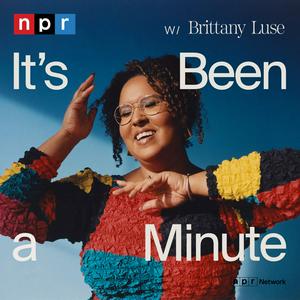Who gets to be "hot" in America? And, at what cost?
Some young men are pushing beauty boundaries with guidance from an online trend that's been making headlines: looksmaxxing. Looksmaxxing celebrates intense fitness & skincare routines, extreme body modification, and notably Eurocentric features as the holy grail of modern beauty, but who gets locked out of looksmaxxing when "Chad" is the gold standard? And how painful is it to pursue perfection that's skin deep?
Brittany is joined by Jason Parham, senior writer at WIRED covering internet culture, online dating, and the future of sex.
(0:00) What is "Looksmaxxing" and why it went mainstream
(2:15) How politics influence who gets to be "attractive"
(7:10) Eugenics and the backlash to Black looksmaxxers
(13:28) Why pursuing beauty standards leaves you feeling lonely
(18:43) How to redefine beauty and feel more confident in your body
Interested in more conversations about body politics and beauty standards? Check out these episodes:
MAGA has a DEI policy. Just ask Nicki Minaj.
The privilege of being "skinny"
Support Public Media. Join NPR Plus.
Follow Brittany on Instagram: @bmluse
For handpicked podcast recommendations every week, subscribe to NPR’s Pod Club newsletter at npr.org/podclub.
To manage podcast ad preferences, review the links below:
See pcm.adswizz.com for information about our collection and use of personal data for sponsorship and to manage your podcast sponsorship preferences.
Learn more about sponsor message choices: podcastchoices.com/adchoices
NPR Privacy Policy


